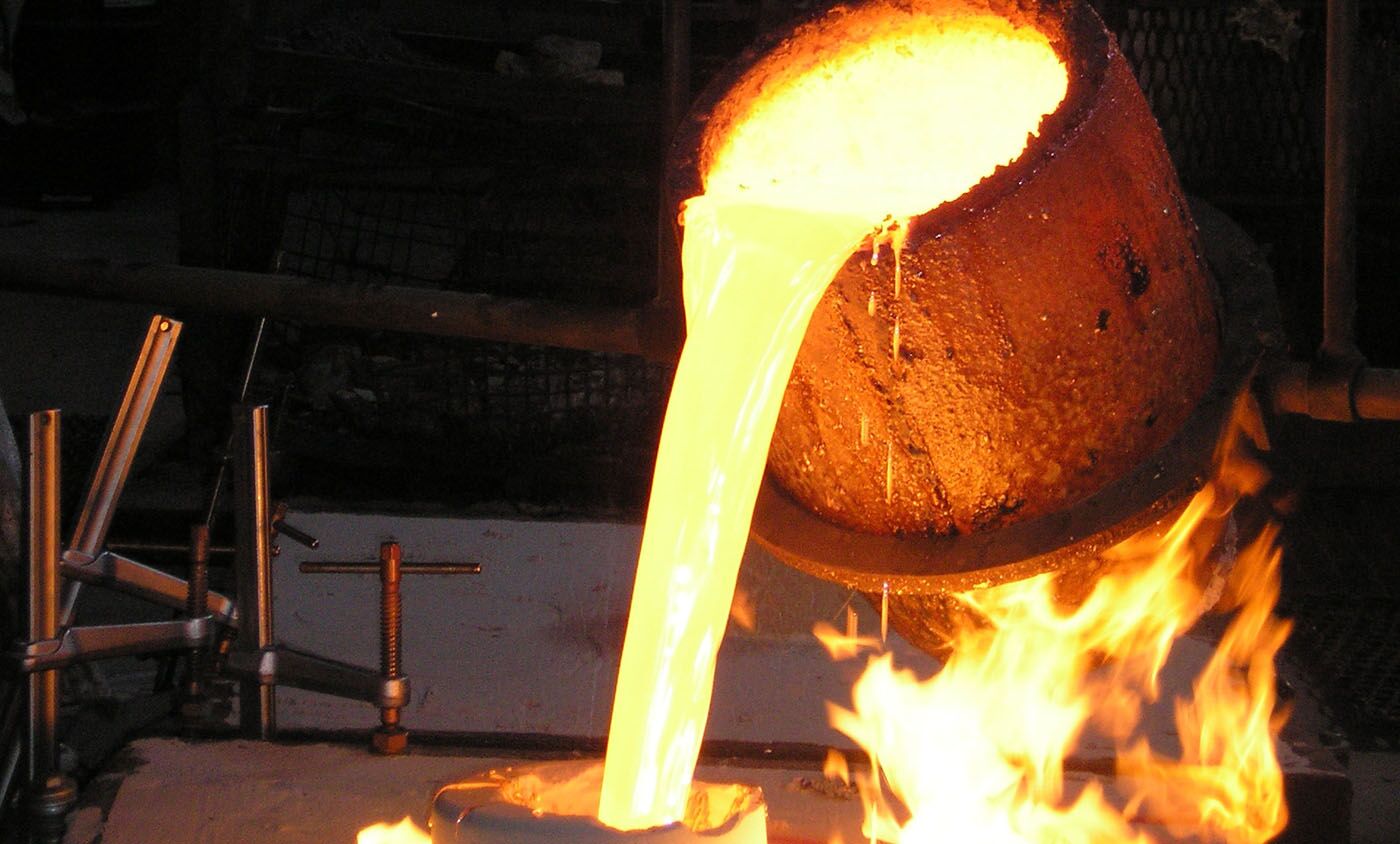Finest Practices for Upkeep and Applications in the Light Weight Aluminum Shop Sector: A Comprehensive Summary
Keeping devices in the light weight aluminum shop field is vital for operational success. Regular examinations and anticipating upkeep can significantly reduce downtime and boost safety. Advanced innovations, such as IoT and information analytics, play a critical duty in this process. Recognizing the complete extent of best techniques calls for a closer exam of details methods and their effects on performance. What are the vital elements that add to a reliable upkeep structure?
Value of Regular Upkeep in Aluminum Foundries
Routine upkeep plays an important function in the efficient operation of aluminum factories. By systematically servicing and examining devices, foundries assure peak efficiency and durability of machinery. Routine upkeep tasks, such as cleansing, part, and lubrication replacement, aid avoid unanticipated malfunctions that can lead to expensive downtime.
Moreover, routine checks improve work environment safety and security by determining potential dangers prior to they intensify into significant problems. Tools that is properly maintained operates better, bring about enhanced item quality and lowered waste. Additionally, adherence to an organized maintenance timetable can support conformity with industry policies, consequently promoting a credibility for dependability and top quality within the market.
Carrying Out Anticipating Upkeep Strategies
Anticipating upkeep approaches take the principles of regular upkeep a step better by leveraging data analytics and progressed monitoring modern technologies. In aluminum factories, these strategies allow drivers to anticipate devices failings before they occur, consequently decreasing unexpected downtimes and maximizing operational effectiveness. By utilizing sensors and IoT tools, real-time information can be collected on maker efficiency, permitting the identification of prospective concerns through predictive analytics.
Enhancing Melting and Putting Procedures
Efficient melting and pouring procedures are essential for making the most of efficiency and ensuring the quality of aluminum spreadings. To enhance these procedures, foundries need to concentrate on accurate temperature control during melting, as this straight impacts the metallurgical properties of the alloy. Using advanced melting modern technologies, such as induction and resistance melting, can enhance energy effectiveness and minimize cycle times.
Moreover, carrying out automated putting systems reduces human error and maintains uniformity in the putting procedure. Proper mold and mildew prep work, including sufficient preheating, is vital to avoid thermal shock and improve mold long life.

Enhancing Safety Methods in Factory Operations
Prioritizing security in light weight aluminum factory procedures is important for shielding employees and assuring an effective setting. Reliable safety and security methods consist of routine training sessions that highlight the value of individual protective equipment (PPE), such as helmets, safety glasses, and handwear covers. In addition, the facility of clear emergency procedures is vital in handling prospective mishaps.
Routine inspections of tools and machinery assistance recognize risks prior to they rise into major problems. Applying a robust reporting system encourages employees to interact security concerns without anxiety of consequence. Moreover, fostering a culture of safety assurances that every staff member understands their role in keeping a secure office.
In addition, ensuring correct air flow and tracking air high quality can reduce direct exposure to hazardous fumes and dirt. By enhancing these visit the site methods, aluminum factories can considerably reduce the danger of crashes and create an atmosphere where workers really feel valued and safe, eventually improving total operational effectiveness.
Leveraging Modern Technology for Improved Performance
Making use of sophisticated innovation has become increasingly essential for light weight aluminum factories aiming to boost functional effectiveness. Automation and robotics play a vital duty in enhancing production processes, lowering labor expenses, and reducing human error. Executing real-time tracking systems enables for the continual evaluation of equipment performance, making it possible for aggressive upkeep and lowering downtime.
In addition, the combination of data analytics provides useful insights right into functional workflows, facilitating better decision-making and resource allocation. For instance, predictive analytics can identify possible failures prior to they take place, additional maximizing upkeep schedules.
In addition, taking on innovative melting and casting innovations boosts power efficiency and product return, which are fundamental for sustainability in the industry. By accepting these technological innovations, light weight aluminum foundries can not only increase efficiency however additionally maintain a competitive edge in a significantly requiring market (aluminum metal casting). Inevitably, leveraging technology is pivotal in driving development and improving look these up general operational efficiency within the market
Frequently Asked Inquiries
What Prevail Indications of Equipment Wear in Aluminum Foundries?
Common signs of tools wear in aluminum shops include unusual sounds, decreased efficiency, raised vibration, overheating components, leakages, and noticeable deterioration. These signs commonly indicate the need for maintenance or potential replacement to stay clear of costly downtime.
Just How Can I Train Staff for Effective Upkeep Practices?
To educate personnel for efficient upkeep methods, one can apply hands-on workshops, establish thorough manuals, motivate mentorship programs, and perform regular evaluations to review skills and knowledge, guaranteeing all staff members recognize maintenance procedures thoroughly.
What Are the Environmental Laws for Light Weight Aluminum Foundries?
Light weight aluminum foundries are subject to different ecological laws, including emissions control, waste management, and resource conservation. Compliance assurances very little environmental effect, advertising sustainability while sticking to neighborhood, nationwide, and global ecological criteria and laws.
Exactly How Do Foundries Manage Waste and Recycling of Light weight aluminum?
Shops manage waste and recycling by executing systems for gathering scrap aluminum, using sophisticated separation technologies, and working together with recycling facilities to guarantee efficient recovery processes, thereby minimizing ecological impact and advertising sustainability within the market.
What Are the Expenses Related To Implementing Advanced Technologies?
Implementing advanced technologies in shops sustains significant prices, consisting of first investment, training, and maintenance expenditures. The long-term advantages, such as raised performance read here and lowered waste, often warrant these expenditures, leading to enhanced success. (aluminum metal casting)
